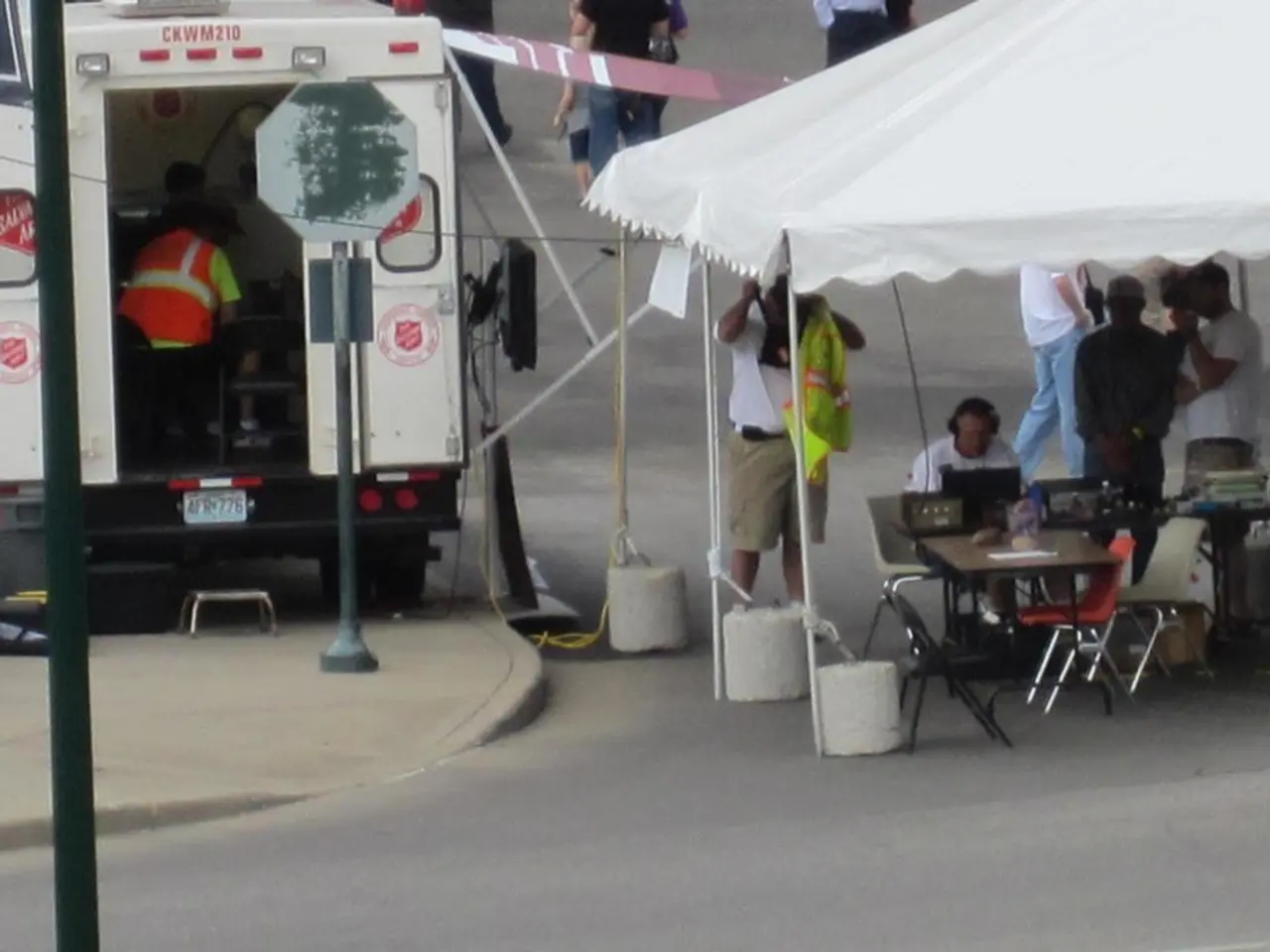International diplomats, including EU officials and 26 foreign ministers, advocate for Non-Governmental Organizations (NGOs) to be granted entry to Gaza.
The international community is expressing deep concern over the critical situation in the Gaza Strip, where a spreading specter of famine looms. A joint statement, signed by the EU Foreign Affairs Representative Kaja Kallas, as well as the Foreign Ministers of most EU countries, Australia, Canada, Iceland, Japan, Norway, Switzerland, and the UK, calls for urgent action to halt the spreading famine. However, Israel's Prime Minister Benjamin Netanyahu disputes the claim of a looming famine, stating that only hostages held by Hamas are going hungry.
The joint statement urges the Israeli government to grant permanent access to the Palestinian territory for the United Nations, non-governmental organizations, and humanitarian actors. It also calls for the utilization of all border crossings and routes to allow a large-scale influx of food, water, medicine, and other vital supplies without politicization or violence at distribution sites. The representatives from the listed countries and the EU Commission have demanded that Israel prioritize the protection of civilians, aid workers, and medical personnel at distribution points.
Despite regular shipments of food aid since 20 July 2025, the current situation of international aid deliveries to Gaza is critically constrained and dangerous. The actual distribution of supplies has been hindered by security issues, with over 90% of supplies reported as being looted by armed groups or taken by desperate crowds along convoy routes. The UN notes a 74% reduction in meals prepared compared to earlier peaks, reflecting difficult operational conditions.
Between late May and early August 2025, more than 1,500 Palestinians have been killed and over 10,000 injured while trying to reach food supplies or aid convoys in Gaza. These deaths mostly resulted from Israeli military actions near food distribution points and convoy routes, despite military pauses intended to improve humanitarian responses.
Critics argue that armed groups like Hamas jeopardize aid distribution by hoarding supplies. There is a call for alternative aid models that bypass Hamas to ensure direct support to civilians. Meanwhile, Israel’s new restrictive NGO registration requirements threaten to force many international NGOs to leave, which would worsen the humanitarian crisis further.
Israel denies blocking the volume of aid allowed into Gaza but maintains control over crossings and imposes registration and operational conditions on aid organizations. These controls, coupled with security concerns, especially along distribution routes, continue to limit aid access and impact humanitarian delivery on the ground.
The UN reports that since May 2025, about 88% of aid trucks have been looted on their routes within Gaza, severely undermining aid effectiveness. The ongoing violence around aid sites, looting of supplies, and restrictive regulations impacting NGOs remain significant challenges in the delivery of aid to the Gaza Strip.
In summary, while international aid is entering Gaza, deliveries face severe logistical, security, and political barriers. Western countries and the EU Commission are pressing for full, unhindered access to facilitate a humanitarian response capable of averting famine and mass suffering, but implementation remains fraught with difficulties. The joint statement, signed by representatives from 26 Western countries, the EU Commission, and several other nations, underscores the urgency of the situation and the need for immediate action to address these challenges and ensure the delivery of aid to those in need in the Gaza Strip.
[1] UN Office for the Coordination of Humanitarian Affairs (OCHA). (2025). Gaza: Humanitarian Bulletin – Issue No. 13, 13 August 2025. [online] Available at: https://ochaopt.org/content/gaza-humanitarian-bulletin-%E2%80%93-issue-no-13-13-august-2025 [Accessed 14 Aug. 2025]. [2] European External Action Service. (2025). Joint Statement on the Situation in Gaza. [online] Available at: https://eeas.europa.eu/headquarters/headquarters-homepage/79844/joint-statement-situation-gaza_en [Accessed 14 Aug. 2025]. [3] The New Humanitarian. (2025). Gaza: Aid agencies struggle to reach needy as supplies are looted. [online] Available at: https://www.thenewhumanitarian.org/news/2025/08/03/Gaza-aid-agencies-struggle-reach-needy-supplies-looted [Accessed 14 Aug. 2025]. [4] Office of the United Nations High Commissioner for Human Rights. (2025). Report of the United Nations High Commissioner for Human Rights on the situation in Palestine and other occupied Arab territories. [online] Available at: https://www.ohchr.org/Documents/Countries/PS/A_HRC_40_48_Add.1_en.pdf [Accessed 14 Aug. 2025]. [5] The Guardian. (2025). Israel's new NGO law threatens to force international aid groups out of Gaza. [online] Available at: https://www.theguardian.com/world/2025/aug/05/israels-new-ngo-law-threatens-to-force-international-aid-groups-out-of-gaza [Accessed 14 Aug. 2025].
Read also:
- Court petitions to reverse established decision on same-sex marriage legalization
- Commemoration of 200 Days of American Resurgence Unveiled
- Minister Bärbel Bas expresses doubts about her tenure as a minister following a recent interview during the summer.
- A Tale of Two RussiansGate Notable Figures: Focus on Mike Davis






